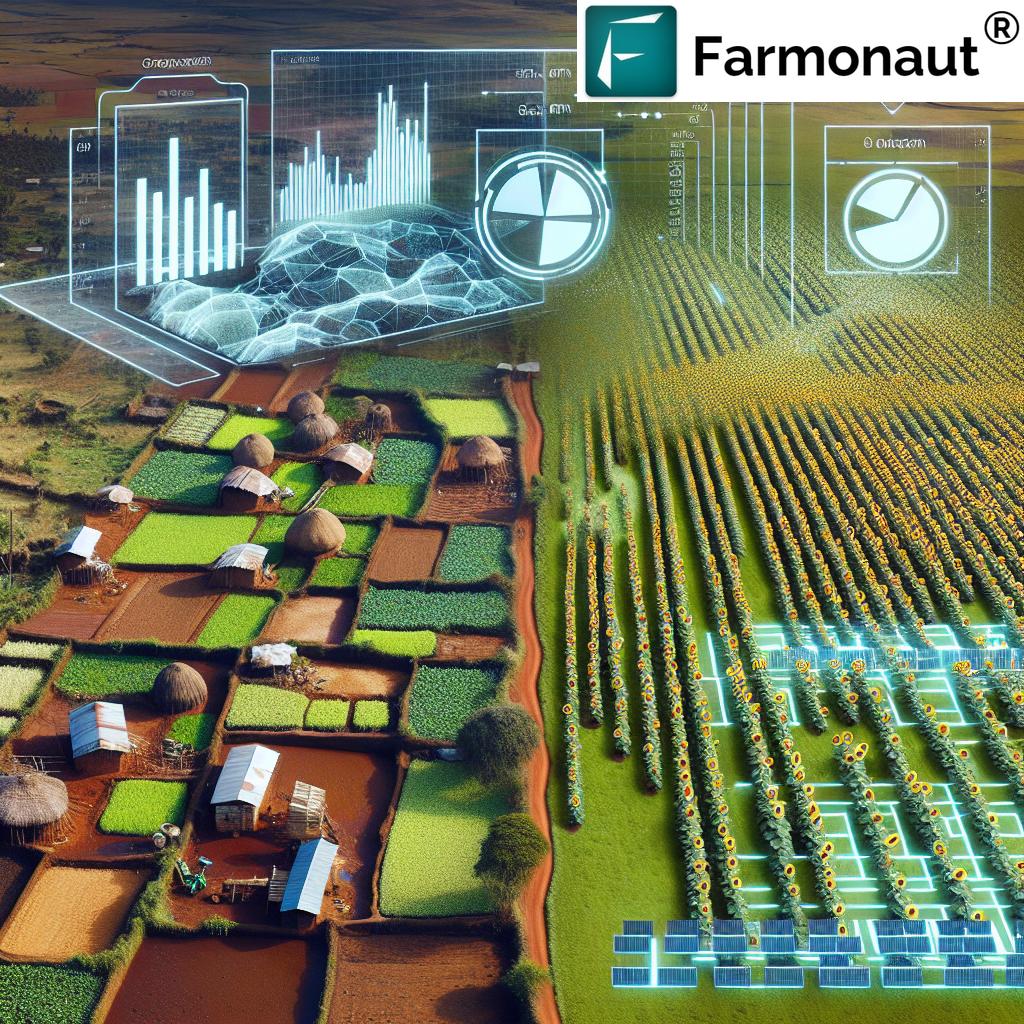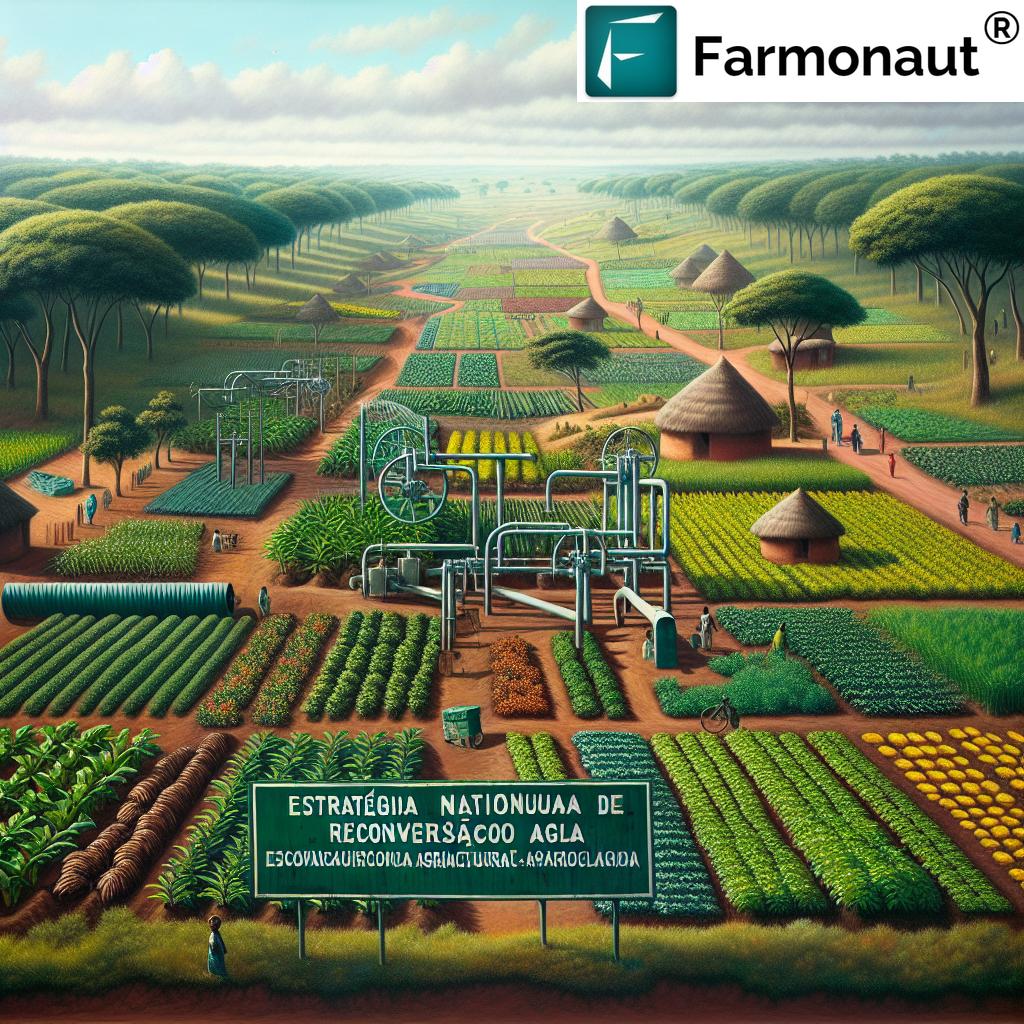Boosting Kenya’s Edible Oil Industry: Sunflower Farming and Agritech Solutions for Sustainable Production
“Kenya aims to expand oil crop cultivation from 60,000 to 250,000 hectares, a 316% increase in farmland.”
In recent years, Kenya has embarked on an ambitious journey to revolutionize its edible oil industry, with a particular focus on sunflower farming. This initiative comes as part of a broader strategy to reduce the country’s reliance on imported cooking oil and boost local agricultural productivity. As we delve into this transformative project, we’ll explore the challenges, opportunities, and the potential role of advanced agritech solutions in shaping a sustainable future for Kenya’s edible oil sector.
The Current Landscape of Kenya’s Edible Oil Industry
Kenya’s edible oil industry has long been characterized by a heavy dependence on imports. Currently, the country invests approximately Sh160 billion annually to import edible oils, making it the second-largest import expenditure after petroleum. This significant outflow of foreign exchange has prompted the government to take decisive action to stimulate local production.

The Kenyan government has initiated a Sh981 million edible oil crop promotion project, launched in October 2023. This ambitious program aims to elevate sunflower production, thereby reducing the country’s reliance on imported edible oils and decreasing the costs associated with cooking oil. The initiative covers 24 counties, including key agricultural regions such as Nakuru, Bungoma, and Uasin Gishu.
Objectives of the Edible Oil Crop Production Initiative
The government’s agricultural program sets forth several ambitious targets:
- Expand oil crop cultivation from 60,000 hectares to 250,000 hectares
- Boost productivity from 0.3-0.5 tonnes per hectare to two tonnes
- Increase local edible oil production from 80,000 metric tonnes to 240,000 metric tonnes
- Generate 1.5 million metric tonnes of sunflower, soybean, and canola seeds for oil extraction
These objectives are not just about increasing numbers; they represent a fundamental shift in Kenya’s agricultural landscape. By focusing on sunflower farming, the government aims to create a sustainable and self-sufficient edible oil industry that can meet domestic demand and potentially create export opportunities.
The Role of Sunflower in Kenya’s Agricultural Revolution
Sunflower has been identified as a key crop in this initiative due to its adaptability across various ecological zones in Kenya. This versatility makes it an ideal candidate for achieving self-sufficiency in edible oil production. Sunflower farming offers several advantages:
- Drought resistance, making it suitable for Kenya’s varied climate
- Short growing cycle, allowing for multiple harvests per year
- High oil content, yielding more edible oil per hectare compared to some other crops
- Potential for value-added products, such as animal feed from the residual cake
The focus on sunflower farming is not just about oil production; it’s part of a broader strategy to diversify Kenya’s agricultural sector and create new economic opportunities for farmers across the country.
Implementation Challenges and Government Scrutiny
Despite the project’s promising objectives, it has faced scrutiny from lawmakers and agricultural experts. Senator Richard Onyonka from Kisii has led inquiries demanding accountability from the Agriculture and Food Authority (AFA) regarding the project’s implementation and financial utilization. Key concerns include:
- Transparency in fund allocation and distribution
- The decision to source sunflower seeds from Zambia instead of supporting local seed production
- The need for clear evaluation metrics to assess the project’s effectiveness
- Questions about the capabilities and ownership of oil crop processing facilities
These concerns highlight the complex challenges involved in implementing such a large-scale agricultural initiative. Addressing these issues transparently will be crucial for the project’s success and long-term sustainability.
The Potential of Agritech Solutions in Kenya’s Sunflower Farming
As Kenya embarks on this ambitious journey to transform its edible oil industry, the integration of advanced agricultural technologies could play a pivotal role in overcoming challenges and optimizing production. This is where innovative solutions like those offered by Farmonaut come into play.
Farmonaut’s satellite-based farm management solutions could provide valuable support to Kenya’s sunflower farming initiative in several ways:
- Real-time Crop Health Monitoring: By utilizing multispectral satellite imagery, farmers can gain insights into vegetation health, soil moisture levels, and other critical metrics. This data-driven approach could help optimize irrigation, fertilizer usage, and pest management strategies.
- AI-powered Advisory Systems: Advanced AI tools like Farmonaut’s Jeevn AI could offer personalized farm advisory services, providing real-time insights and expert crop management strategies tailored to local conditions.
- Resource Management: Efficient resource allocation is crucial for large-scale agricultural projects. Farmonaut’s tools for fleet and resource management could help reduce operational costs and improve overall farm productivity.
- Carbon Footprint Tracking: As sustainability becomes increasingly important, the ability to monitor and reduce environmental impact through carbon footprint tracking could be invaluable for Kenya’s agricultural sector.
“The Kenyan government’s Sh981 million project targets increasing local edible oil production by 200%, from 80,000 to 240,000 metric tonnes.”
The integration of such agritech solutions could significantly enhance the effectiveness of Kenya’s edible oil crop production initiative, potentially accelerating progress towards the ambitious targets set by the government.
Economic Impact and Job Creation
One of the most promising aspects of Kenya’s sunflower farming initiative is its potential for job creation and economic growth. The project is expected to generate employment opportunities across various sectors, including:
- Seed distribution and production
- Agricultural labor for planting, maintenance, and harvesting
- Warehousing and transportation
- Agro-processing and oil extraction
- Marketing and distribution of locally produced edible oils
By stimulating these sectors, the initiative has the potential to create a ripple effect throughout Kenya’s economy, boosting rural development and reducing unemployment rates in agricultural regions.
Sustainable Farming Practices and Environmental Considerations
As Kenya scales up its sunflower production, it’s crucial to consider the environmental implications and promote sustainable farming practices. This is where precision agriculture technologies can make a significant impact:
- Optimized Resource Use: By leveraging data from satellite imagery and AI-driven insights, farmers can optimize their use of water, fertilizers, and pesticides, reducing waste and environmental impact.
- Soil Conservation: Proper crop rotation and soil management techniques can help maintain soil health and prevent degradation, ensuring long-term sustainability of sunflower farming.
- Biodiversity Preservation: Implementing integrated pest management strategies and promoting pollinator-friendly practices can help maintain ecological balance in farming areas.

By adopting these sustainable practices, Kenya can ensure that its sunflower farming initiative not only boosts edible oil production but also contributes to environmental conservation and climate resilience.
Addressing Challenges in the Supply Chain
For Kenya’s edible oil industry to truly thrive, it’s essential to address challenges throughout the supply chain. This includes:
- Improving Storage and Processing Facilities: Investing in modern storage solutions and oil processing plants to handle increased production volumes.
- Enhancing Transportation Infrastructure: Developing efficient transportation networks to move sunflower seeds from farms to processing facilities and distribute the final product to markets.
- Implementing Quality Control Measures: Establishing rigorous quality standards for locally produced edible oils to ensure they meet both domestic and international requirements.
- Developing Market Linkages: Creating strong connections between farmers, processors, and retailers to ensure a steady demand for locally produced sunflower oil.
Addressing these supply chain challenges will be crucial for the long-term success of Kenya’s edible oil industry.
The Role of Technology in Monitoring and Evaluation
As lawmakers call for transparency and effectiveness in the implementation of the edible oil crop promotion project, technology can play a crucial role in monitoring and evaluation. Here’s how advanced agritech solutions could contribute:
- Real-time Progress Tracking: Satellite-based monitoring systems can provide up-to-date information on the expansion of sunflower cultivation areas, helping authorities track progress towards the 250,000-hectare target.
- Yield Estimation: Advanced AI algorithms can analyze satellite imagery to estimate crop yields, providing valuable data for assessing the project’s impact on productivity.
- Resource Allocation Monitoring: Digital platforms can help track the distribution of seeds, fertilizers, and other resources, ensuring they reach the intended beneficiaries.
- Impact Assessment: By integrating various data sources, including satellite imagery, weather data, and ground-level reports, comprehensive impact assessments can be conducted to evaluate the project’s effectiveness.
Implementing these technological solutions could not only enhance the transparency of the project but also provide valuable insights for continuous improvement and optimization of Kenya’s sunflower farming initiative.
Comparative Analysis: Current Status vs. Government Targets
To better understand the scale of transformation that Kenya’s edible oil industry is undergoing, let’s examine a comparison of key metrics:
| Metrics | Current Status | Government Target | Potential with Agritech |
|---|---|---|---|
| Total Cultivation Area (hectares) | 60,000 | 250,000 | 275,000+ |
| Annual Edible Oil Production (metric tonnes) | 80,000 | 240,000 | 300,000+ |
| Number of Counties Involved | Limited | 24 | 30+ |
| Estimated Job Creation | Minimal | Significant | Extensive |
| Crop Yield (tonnes/hectare) | 0.3-0.5 | 2.0 | 2.5+ |
This table illustrates the ambitious nature of Kenya’s edible oil crop production initiative and highlights the potential for even greater achievements through the integration of advanced agritech solutions.
Challenges and Opportunities in Local Seed Production
One of the contentious issues raised by lawmakers is the government’s decision to source sunflower seeds from Zambia instead of supporting local seed production. This presents both challenges and opportunities:
Challenges:
- Dependence on foreign suppliers for crucial inputs
- Potential vulnerability to supply chain disruptions
- Missed opportunity for developing local seed production capacity
Opportunities:
- Potential for technology transfer and knowledge sharing with Zambian producers
- Opportunity to develop a robust local seed production industry in the long term
- Possibility of creating partnerships for regional seed production and distribution
Addressing these challenges and leveraging the opportunities will be crucial for the long-term sustainability of Kenya’s sunflower farming initiative.
The Role of Public-Private Partnerships
To fully realize the potential of Kenya’s edible oil industry transformation, strong public-private partnerships will be essential. These collaborations can bring together government resources, private sector expertise, and technological innovations to drive the initiative forward. Key areas for partnership include:
- Research and Development: Collaborations between universities, research institutions, and private companies to develop high-yield, drought-resistant sunflower varieties suited to Kenya’s diverse agro-ecological zones.
- Technology Transfer: Partnerships with agritech companies to introduce and adapt advanced farming technologies for local conditions.
- Financial Services: Collaborations with banks and microfinance institutions to provide accessible financing options for farmers transitioning to sunflower cultivation.
- Market Development: Partnerships with food processing companies and retailers to create stable demand for locally produced sunflower oil.
By fostering these partnerships, Kenya can create a robust ecosystem that supports the growth and sustainability of its edible oil industry.
Capacity Building and Farmer Education
For Kenya’s sunflower farming initiative to succeed, it’s crucial to invest in capacity building and farmer education. This involves:
- Training Programs: Developing comprehensive training modules on sunflower cultivation techniques, pest management, and post-harvest handling.
- Extension Services: Strengthening agricultural extension services to provide ongoing support and guidance to farmers.
- Technology Adoption: Educating farmers on the use of modern farming technologies and data-driven decision-making tools.
- Financial Literacy: Providing training on financial management and access to credit to help farmers invest in their operations.
By empowering farmers with knowledge and skills, Kenya can ensure the long-term success of its edible oil crop production initiative.
The Future of Kenya’s Edible Oil Industry
As we look to the future, the potential for Kenya’s edible oil industry is immense. With the right combination of government support, technological innovation, and sustainable farming practices, Kenya could not only achieve self-sufficiency in edible oil production but also become a regional exporter.
Key factors that will shape the industry’s future include:
- Climate Resilience: Developing strategies to mitigate the impacts of climate change on sunflower farming.
- Value Addition: Exploring opportunities for value-added sunflower products beyond edible oil.
- International Competitiveness: Ensuring that locally produced sunflower oil meets international quality standards to compete in global markets.
- Continuous Innovation: Embracing ongoing technological advancements to stay at the forefront of agricultural productivity.
Conclusion: A Transformative Journey for Kenya’s Agriculture
Kenya’s ambitious plan to boost its edible oil industry through sunflower farming represents a transformative journey for the country’s agricultural sector. While challenges remain, the potential benefits in terms of economic growth, job creation, and reduced import dependence are significant.
The integration of advanced agritech solutions, such as those offered by Farmonaut, could play a crucial role in overcoming obstacles and optimizing production. By leveraging satellite-based monitoring, AI-driven insights, and precision agriculture techniques, Kenya can accelerate its progress towards becoming a self-sufficient edible oil producer.
As the initiative moves forward, transparency, ongoing evaluation, and adaptive management will be key to its success. With continued commitment from the government, active participation from farmers, and support from the private sector, Kenya’s edible oil industry is poised for a bright and sustainable future.
FAQs
- Q: What is the main goal of Kenya’s edible oil crop production initiative?
A: The primary goal is to reduce Kenya’s reliance on imported cooking oil by boosting local sunflower farming and edible oil production. - Q: How much does Kenya currently spend on importing edible oils?
A: Kenya spends approximately Sh160 billion annually on edible oil imports. - Q: What are the target areas for sunflower cultivation in Kenya?
A: The initiative covers 24 counties, including Nakuru, Bungoma, and Uasin Gishu. - Q: How can agritech solutions contribute to the success of this initiative?
A: Agritech solutions like satellite-based monitoring and AI-driven insights can help optimize crop health, resource management, and overall farm productivity. - Q: What are the main challenges facing the implementation of this project?
A: Key challenges include transparency in fund allocation, sourcing of seeds, evaluation of project effectiveness, and development of processing facilities.
For more information on how advanced agritech solutions can support sustainable farming initiatives, visit Farmonaut’s web application or explore our API solutions. You can also check out our API Developer Docs for detailed information on integrating our services into your agricultural projects.
Download our mobile apps for on-the-go farm management:



















